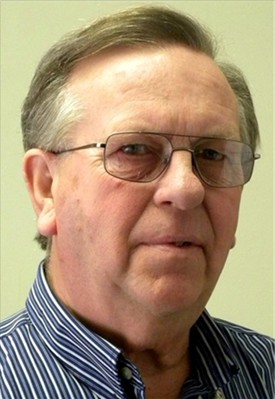Disaster Prep For The Rest Of Us
by Dave Robinson

Seasoned Preppers
Originally published June 21, 2016
One of the most vulnerable groups is that of our “seasoned citizens.” Whether it’s mobility issues, health concerns or just simply the “alone factor,” our seniors often have different needs than the younger crowd.
This week’s column is provided especially for our seniors although the information is just as relevant for the post-boomer generation as well. As I have mentioned before, when disaster occurs, the first responders are overwhelmed. Y.O.Y.O then becomes a reality. (You’re On Your Own). The American Red Cross recommends you create a Personal Support Network made up of several folks who will check in on you, ensure your wellness and give assistance if needed. This network can consist of friends, roommates, family members, relatives, personal attendants, co-workers and neighbors. Ideally, a minimum of three people can be identified at each location where you regularly spend time, for example at work, home, or volunteer site.
There are seven (7) important items to discuss and implement with a personal support network:
1. Make arrangements, prior to an emergency, for your support network to immediately check on you after a disaster and, if needed, offer assistance.
2. Exchange important keys.
3. Show them where you keep emergency supplies.
4. Share copies of your relevant emergency documents, evacuation plans and emergency health information card.
5. Agree on and practice methods of contacting each other in the event of an emergency. Do not count on the telephones working. (Dave’s note: Check out FRS radios or consider sharing the cost of a goTenna with someone. www.gotenna.com.)
6. You and your network should always notify each other when you’re going to be out of town and when you will return.
7. The relationship should be mutual. You have a lot to contribute! Learn about each other’s needs and how to help each other in an emergency. You can even collaborate on making preparations to be ready for a disaster.
The single most important thing anyone can do to prepare for a disaster is to organize their neighborhood. And it doesn’t cost a cent! Contacting your neighbors, especially fellow Seniors can build a sense of community and camaraderie along with an assurance that no one need to face adversity alone. Introduce the topic at the Senior Center, or your church group or the quilting group. Collaborating on projects can not only bring some peace of mind, but just may bring some new friends into your life.
Keep in mind you may want to stock up on certain medications. Most doctors are sympathetic to your needs regarding planning for disaster and are willing to cooperate by prescribing most maintenance medications in advance. The difficult thing here is to get your insurance to get on board with that concept. So any advance preparations you make in that regard may have to come out of your own pocket. Then be sure to take special care to mind the expiration dates on your meds. Also try to see your way clear to pick up an extra pair of eyeglasses. Finally, some of us have enough trouble keeping track of our glasses even without a disaster, so adding a pair of drugstore “cheaters” to your kit just might not be a bad idea.
As always email your questions and comments to disasterprep.dave@gmail.com.br>
Note: Dave Robinson is Bandon's Postmaster and has worked for the postal service for 30 years. He has a background in law enforcement, served in the Air Force in Vietnam, worked nine years for the Coos County Sheriff's Department, and serves on the Myrtle Point School Board, where he lives.
additional columns by Dave Robinson

